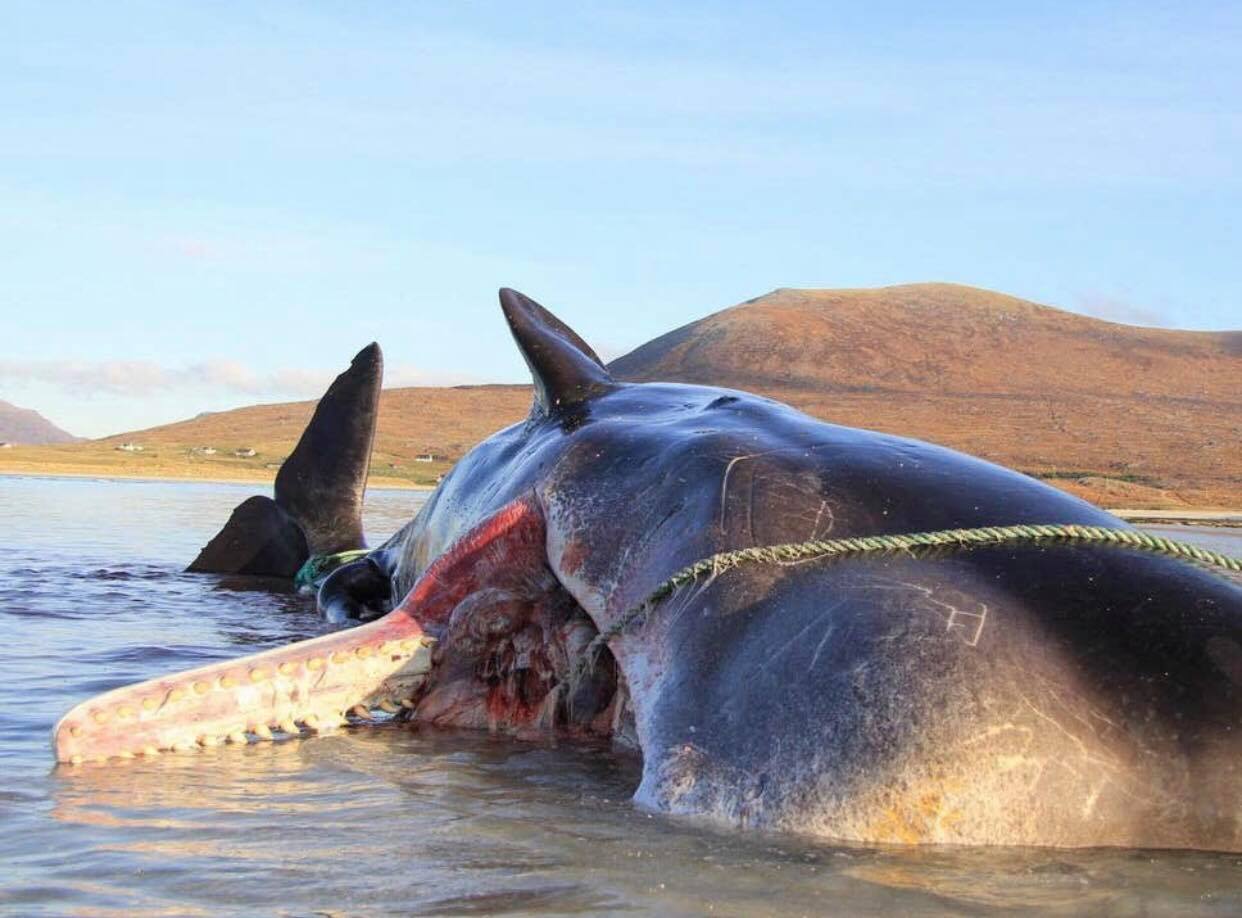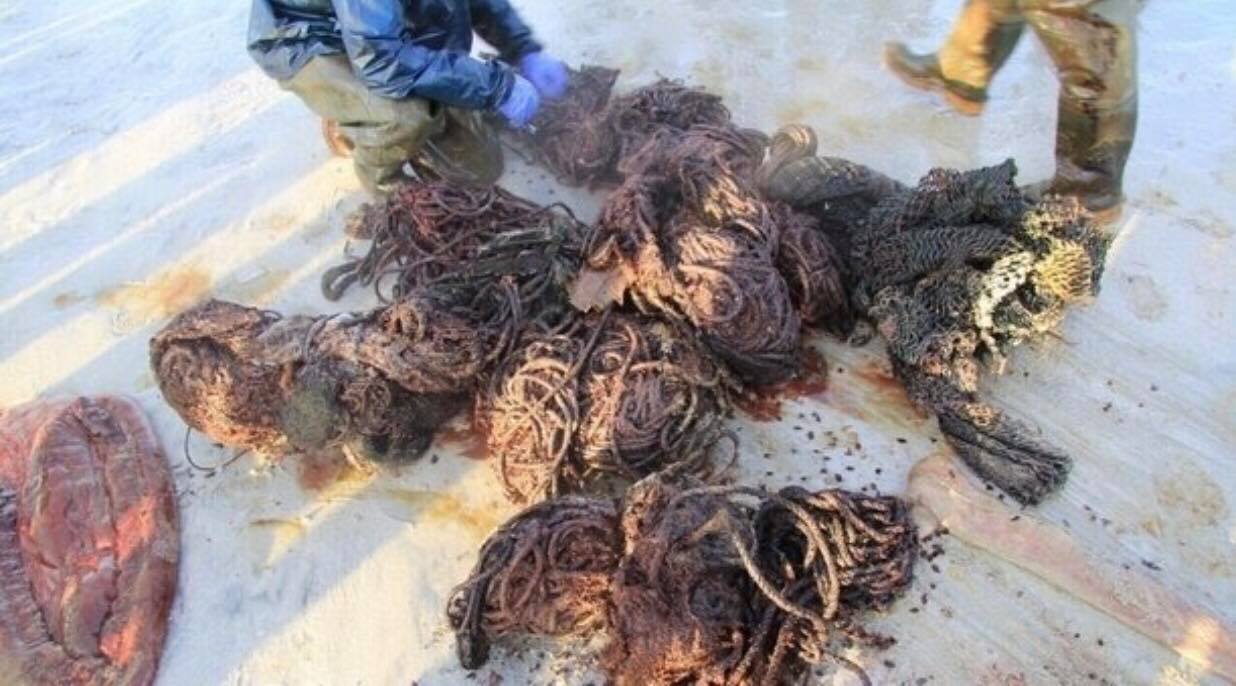Stranded Sperm whale in the U.K. had 100 kg of plastic in its stomach.
Marine Mammal Scientists have determined that a sperm whale stranded in the Isle of Harris in Scotland's outer Hebrides had a "huge ball" of marine debris in its stomach, aproximately 100 kg in weight. While it is uncertain if the plastic debris was the cause of the whale's death - it highlights the broader issue of marine pollution.
The Scottish Marine Animal Stranding Scheme (SMASS), an organisation that investigates whale and dolphin mortality, discovered approx. 100 kg of plastics inside the stomach of a dead stranded sperm whale, which included fishing nets, bundlees of rope, plastic cups, plastic bags, plastic gloves, packaging and tubing.
The Scottish Marine Animal Stranding Scheme (SMASS) have described the event as "horrific" and have said that the debris seemed to have come from both the land and fishing sectors and could have been ingested anywhere between te Azores and Norway. The group has revealed that by the time they managed to conduct a necropsy having located the whale, it had been deceased over 48 hours which led to it being in a delicate position for examination. It has been said that the animals guts blew out of its side when the examination began.
© Ocean Research & Conservation Ireland (ORCireland) and www.orcireland.ie , est. 2017. If you like our blogs on the latest news in marine science and would like to support our work, visit www.orcireland.ie to become a member, to volunteer or to make a donation today.
SHARE THIS ARTICLE















